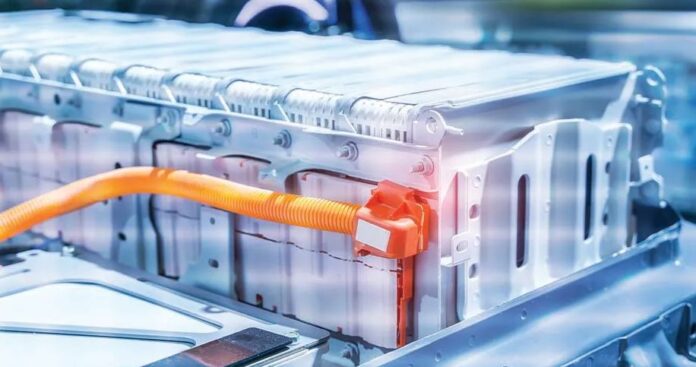British recycling firm Altilium and Jaguar Land Rover (JLR) have announced a pilot project to build and test battery cells using recycled materials from old Jaguar i-Pace electric vehicles. This initiative aims to demonstrate the viability of large-scale recycled battery production.
The project, which will run over the next year, is partially funded by Tata Motors, JLR’s parent company, and the UK government-backed Advanced Propulsion Centre. It will involve extracting cathode active materials, including lithium, cobalt, and nickel, from used i-Pace batteries to create new battery cells for testing in upcoming JLR electric vehicles.
With the rise in electric vehicle (EV) production, there is growing competition to recycle valuable minerals found in EV batteries. These materials, particularly lithium, cobalt, and nickel, can be worth thousands of euros per vehicle. Recycling efforts aim to reduce reliance on newly mined materials and counter China’s dominance in the battery materials market.
The automotive industry is also facing increasing regulatory pressure to adopt battery recycling practices. Starting in 2031, EV batteries sold in the European Union must contain at least 6% recycled lithium, 6% recycled nickel, and 16% recycled cobalt. These targets will increase to 12%, 15%, and 26%, respectively, by 2036.
Altilium claims its recycling process can help automakers meet carbon reduction targets by reducing the demand for newly mined materials, cutting carbon emissions by 60%. Earlier this year, the company received significant backing from SQM Lithium Ventures, the venture arm of Sociedad Quimica y Minera de Chile (SQM), in a $12 million Series A funding round. SQM, the world’s second-largest lithium producer, had previously invested $2.6 million in Altilium in 2022.
This collaboration between JLR and Altilium represents a significant step forward in sustainable EV battery production, addressing both environmental concerns and regulatory requirements.
Key Points:
- Recycling Initiative: Jaguar Land Rover (JLR) and British recycling firm Altilium have launched a pilot project to recycle battery materials from old Jaguar i-Pace electric vehicles and create new battery cells.
- Project Partners: The project is part-funded by Tata Motors, JLR’s parent company, and the UK government-backed Advanced Propulsion Centre.
- Valuable Materials: The initiative focuses on recycling critical materials such as lithium, cobalt, and nickel, which are valuable and essential for EV battery production.
- Regulatory Pressure: From 2031, EU regulations will require new EV batteries to contain a minimum percentage of recycled materials, including 6% lithium, 6% nickel, and 16% cobalt. These targets will increase by 2036.
- Environmental Impact: Altilium’s recycling process is expected to reduce carbon emissions by 60% by lowering the need for newly mined materials.
- Funding Support: Altilium has received significant investments, including a $12 million Series A funding round led by SQM Lithium Ventures, the venture arm of Sociedad Quimica y Minera de Chile, the world’s second-largest lithium producer.



